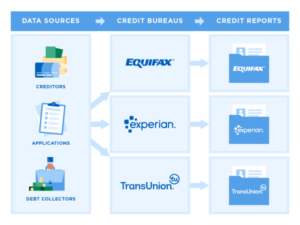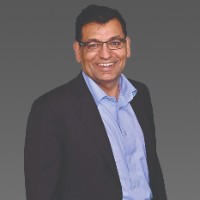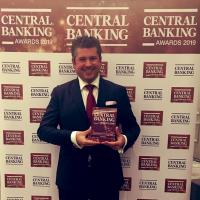Post-Covid Hong Kong is meeting the world with a new outlook on collaboration. Historically known as a trade hub in the East, we are now looking westwards with new projects launching in the Middle East. With the advantages created by Hong Kong’s geographical location and its regional expertise, we are perfectly poised to establish mutually beneficial projects with our trade partners in the Gulf.
Specifically, our partnerships with the Kingdom of Saudi Arabia and the United Arab Emirates will allow us to tap into great opportunities for development in logistics, technology, energy, and finance, just to name a few, and showcase Hong Kong’s unique advantages as regional connector in front of a global audience. As we establish our reputation as a connector of diverse global markets, there are several unique learning opportunities that await us in the Middle East.
Thanks to their key locations, a plethora of natural resources and progressive initiatives, like the UAE’s NextGen FDI and Saudi Arabia’s Vision 2030 economic diversification plan, Hong Kong’s Gulf partners enable us to not only tap into economically lucrative projects but also allow us to showcase the best of what we have to offer.

A burgeoning banking sector
The banking sector in several Gulf states has seen substantial asset growth since emerging from the Covid 19 pandemic. The top 30 banks in the region have seen a 13% increase in the value of their combined assets, hitting 2.5 trillion USD by the end of 2021.
We have been able to tap into this burgeoning market through partnerships being established between the Saudi Central Bank SAMA, the Central Bank of the United Arab Emirates (CBUAE), and the Hong Kong Monetary Authority (HKMA) announced this summer. Not only will these collaborations allow us to innovate and strengthen our fintech and financial sectors, but we are also able to engage in knowledge sharing around regulatory development to provide a diverse perspective on how we can engage with other regional players on finance projects.
The memoranda of understanding (MoU) and letters of intent signed with Saudi organisations, like the Saudi Tadawul Group, the parent company of Saudi Exchange, and Hong Kong Exchanges and Clearing, will help aid our understanding of this banking system as we engage in knowledge sharing about the ways in which they have structured their financial instruments.

While Hong Kong institutions have engaged in Islamic banking in the past, this latest MoU will further enrich this through increased cooperation in fintech, cross-listings, and environmental, social, and governance areas. HKMA has launched Islamic bonds, known as sukuk, in the past with the most recent being offered in 2017 with a 10-year maturity period. and the Hong Kong Securities and Investment Institute has also offered courses specifically looking at Islamic banking and the unique structure of different financial instruments.
These experiences give us a great head start when it comes to conversations about financial infrastructure, financial market connectivity between jurisdictions, and virtual asset regulations and developments.
The future of fintech in the Gulf
The UAE and Saudi Arabia are now keen, more than ever, to develop their standing in the fintech space and are making great strides. The UAE fintech market alone is estimated to have a transaction value of 39.3 billion USD in 2023 and is expected to grow more than 15% by 2028. However, there are still some challenges they must overcome relating to capital liquidity, talent retention, and less than dynamic IPO market, which may deter investors. Hong Kong’s experience as a global fintech hub makes it the ideal partner for countries wishing to enhance their standing in this market and open the doors to cross-border investment opportunities for players on both sides.
Furthermore, as Hong Kong shapes itself to capture the next generation of fintech in digital assets and Web3, the government is also investing heavily in its I&T ecosystem and aims to attract more investment partners. In the space of just two years, Hong Kong has leaped from 15th to 9th place on the United Nation’s frontier technologies readiness index, demonstrating that the city’s progressive policies, investment, and long-term commitments are on the right track.
Our projects with our Middle Eastern counterparts ensure that we are on track for our FinTech 2025 financial digitalisation plans. The government’s plan to further develop STOs will help attract capital inflows from the Middle East, as STO exchanges take off in the region.

Fintech projects like mBridge also help increase the potential for international trade flow to Hong Kong. mBridge in particular allows for cross-border collaboration on the creation and regulation of Central Bank Digital Currencies,(CBDCs) between Thailand, China and the UAE, which will also boost tech innovation. The project uses experimental ledger technology to create a platform for the issuance and exchange of CBDCs, linking central banks with commercial partners.
Tackling tech opportunities
Governments in the Gulf region are also leaning into developing their offerings with key initiatives to attract I&T companies. For instance, the UAE’s latest NextGen FDI technology initiative aims to attract 300 digitally enabled companies that focus on advanced technology applications in various sectors.
These emerging opportunities have captured the interest of key technology players in Hong Kong. The Hong Kong Science and Technology Parks Corporation (HKSTP), for example, co-hosted the One Gateway Shared Vision – Hong Kong Special Administrative Region and Kingdom of Saudi Arabia event with Saudi investment firm eWTP Arabia Capital (eWTPA).
The event welcomed the Saudi Minister of Communications and Information Technology and his delegation to Hong Kong to set the stage for the launch of the Saudi Arabia-China Entrepreneurs Association. As a result, 11 high-tech companies were able to sign deals with eWTPA to explore more opportunities in the Middle East market.
With a young population keen to be a part of key developments in tech, events like the LEAP23, hosted by Saudi Arabia, generated more 9 billion USD in on-event transactions. The event, hosted by MCIT, is the world’s largest technology event by attendance and has brought a substantial amount of foreign investment to the Kingdom. This year, new data centres, billion-dollar-plus public-private partnerships and new upskilling academies were launched at the event.
Hong Kong returns to the world stage
To celebrate the 10th anniversary of the Belt and Road Initiative, the Hong Kong government held the Belt and Road Summit on 13 September. At the occasion, the Financial Services and the Treasury Bureau signed a MoU with the Department of Economy and Tourism of the Government of Dubai of the UAE, with aims to strengthen bilateral relations and cooperation to facilitate sustainable development in both regions’ financial service industries. The MoU would enable policy communication and information exchange between the two cities in key financial sectors. InvestHK will play an active role in implementation, including wealth management, family offices, fintech, virtual assets, and green finance. This indicates high prospects for further cooperation between Hong Kong and the Middle East.

As we look to the opportunities available in the Middle East, we can see how Hong Kong’s access to the resources in the Greater Bay Area and its lucrative banking, fintech and I&T ecosystems can help support these new ventures. MoUs, collaboration on CBDCs, joint events, and entrenching ourselves further in newer financial systems, allow us to access greater regional partnerships while highlighting Hong Kong’s advantages as a global connector for diverse markets.
- SEO Powered Content & PR Distribution. Get Amplified Today.
- PlatoData.Network Vertical Generative Ai. Empower Yourself. Access Here.
- PlatoAiStream. Web3 Intelligence. Knowledge Amplified. Access Here.
- PlatoESG. Carbon, CleanTech, Energy, Environment, Solar, Waste Management. Access Here.
- PlatoHealth. Biotech and Clinical Trials Intelligence. Access Here.
- Source: https://www.finextra.com/blogposting/24945/hong-kongs-resurgence-powered-by-middle-east-connections?utm_medium=rssfinextra&utm_source=finextrablogs
- :has
- :is
- :not
- 10th
- 11
- 13
- 15%
- 19
- 2017
- 2021
- 2023
- 2025
- 2028
- 2030
- 30
- 39
- 9
- 9th
- a
- Able
- About
- Academies
- access
- active
- administrative
- advanced
- Advanced Technology
- advantages
- Aid
- aims
- allow
- allows
- alone
- also
- amount
- an
- and
- Anniversary
- announced
- applications
- Arab
- Arab Emirates
- ARE
- AREA
- areas
- around
- AS
- asset
- Assets
- Association
- At
- attendance
- attract
- audience
- authority
- available
- await
- Bank
- Banking
- banking sector
- banking system
- Banks
- Bay
- BE
- been
- being
- beneficial
- BEST
- between
- Billion
- Bonds
- boost
- both
- Both Sides
- brought
- Bureau
- burgeoning
- but
- by
- CAN
- capital
- capture
- captured
- CBDCs
- celebrate
- central
- Central Bank
- central bank digital currencies
- Central Banks
- centres
- China
- Cities
- Clearing
- collaboration
- collaborations
- combined
- comes
- commercial
- commitments
- Communication
- Communications
- Companies
- company
- Connections
- Connectivity
- conversations
- cooperation
- CORPORATION
- countries
- Covid
- create
- created
- creation
- cross-border
- currencies
- data
- data centres
- Deals
- delegation
- demonstrating
- Department
- develop
- developing
- Development
- developments
- different
- digital
- Digital Assets
- digital currencies
- digitalisation
- digitally
- diverse
- diversification
- doors
- Dubai
- dynamic
- East
- eastern
- Economic
- economy
- ecosystem
- Ecosystems
- emerging
- emirates
- enable
- enabled
- end
- energy
- engage
- engaged
- enhance
- enrich
- ensure
- entrepreneurs
- environmental
- establish
- established
- estimated
- Event
- events
- EVER
- example
- exchange
- Exchanges
- expected
- experience
- Experiences
- experimental
- expertise
- explore
- facilitate
- family
- few
- finance
- financial
- financial infrastructure
- Financial Instruments
- Financial Market
- financial service
- financial services
- financial systems
- fintech
- Firm
- flow
- Focus
- For
- foreign
- from
- front
- Frontier
- further
- future
- gateway
- generated
- generation
- geographical
- Give
- Global
- global audience
- global markets
- governance
- Government
- great
- greater
- Greater Bay Area
- Green
- Green Finance
- Group
- Grow
- Growth
- Have
- head
- heavily
- Held
- help
- High
- highlighting
- his
- historically
- hitting
- HKMA
- Hong
- Hong Kong
- Hong Kong Monetary Authority
- Hong Kong Monetary Authority (HKMA)
- hosted
- How
- However
- HTTPS
- Hub
- ideal
- implementation
- in
- Including
- Increase
- increased
- index
- indicates
- industries
- inflows
- information
- information technology
- Infrastructure
- Initiative
- initiatives
- innovate
- Innovation
- instance
- Institute
- institutions
- instruments
- intent
- interest
- International
- International Trade
- into
- InvestHK
- investing
- investment
- investment opportunities
- Investors
- IPO
- Islamic
- Islamic Banking
- issuance
- IT
- ITS
- itself
- joint
- jurisdictions
- just
- Keen
- Key
- Kingdom
- knowledge
- known
- Kong
- largest
- latest
- launch
- launched
- launching
- learning
- Ledger
- less
- like
- linking
- Liquidity
- location
- locations
- logistics
- long-term
- Look
- looking
- lucrative
- MAKES
- Making
- management
- Market
- Markets
- maturity
- May..
- mbridge
- meeting
- Middle
- Middle East
- Monetary
- monetary authority
- more
- most
- MOU
- must
- mutually
- name
- Nations
- Natural
- New
- next
- nextgen
- now
- occasion
- of
- off
- offer
- offered
- Offerings
- offices
- on
- ONE
- only
- open
- opportunities
- Organisations
- Other
- our
- ourselves
- Outlook
- Overcome
- pandemic
- parent company
- part
- particular
- partner
- partners
- partnerships
- past
- perfectly
- period
- perspective
- Place
- plan
- plans
- platform
- plato
- Plato Data Intelligence
- PlatoData
- Play
- players
- plethora
- poised
- policies
- policy
- population
- potential
- powered
- progressive
- project
- projects
- prospects
- provide
- Readiness
- region
- regional
- Regulation
- regulations
- regulatory
- relations
- reputation
- Resources
- result
- retention
- returns
- right
- road
- Role
- s
- sama
- Saudi
- Saudi Arabia
- Saudi Central Bank
- Science
- Science and Technology
- sector
- Sectors
- Securities
- see
- seen
- September
- service
- Services
- set
- several
- shapes
- shared
- sharing
- showcase
- Sides
- sign
- signed
- since
- Social
- some
- Space
- special
- specifically
- Stage
- start
- States
- Still
- STO
- Strengthen
- strides
- structure
- structured
- substantial
- summer
- Summit
- support
- sustainable
- Sustainable Development
- system
- Systems
- Take
- Talent
- Tap
- tech
- Technologies
- Technology
- Thailand
- than
- that
- The
- the world
- their
- There.
- These
- they
- this
- this year
- Through
- to
- top
- Tourism
- track
- trade
- transaction
- Transactions
- treasury
- Trillion
- two
- UAE
- understanding
- unique
- United
- United Arab
- United Arab Emirates
- us
- USD
- uses
- value
- various
- Ventures
- Virtual
- virtual asset
- virtual assets
- vision
- ways
- we
- Wealth
- wealth management
- Web3
- welcomed
- were
- What
- when
- which
- while
- will
- wishing
- with
- world
- world’s
- would
- year
- years
- young
- zephyrnet












